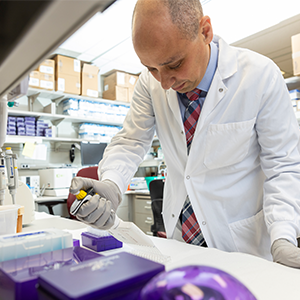Forgetfulness and memory loss are trademark symptoms of Alzheimer's disease. Personality changes are also somewhat common. Dr. Ronald Petersen, a Mayo Clinic neurologist, says personality characteristics may become amplified, or they may change significantly.
Journalists: Broadcast-quality video pkg (1:00) is in the downloads. Read the script.
Watching a loved one’s personality change because of Alzheimer’s disease is not easy.
Dr. Petersen says, “Many times, when people develop Alzheimer’s disease, their personality traits sort of become exaggerated. So if they’re a genuinely nice person and have been quite affable throughout most of their life, that continues into the disease process.”
But, sometimes, the disease can completely change someone’s personality.
“Occasionally, it happens that people do a 180. That is, the nice, little old grandmother throughout her whole life develops the disease and then starts talking like a sailor later on in life using words that she had never used throughout her life.”
The question is why? It may be related to the part of the brain that’s affected.
“If the disease process tends to affect, say, the frontal lobes of the brain, the frontal lobes are involved in our behaviors, our personalities, our right and wrong, inhibition, disinhibition. If that part of the brain becomes affected, then all of those features, all of those behaviors, start to change.”
Dr. Petersen and his team strive to learn more about Alzheimer’s disease.






